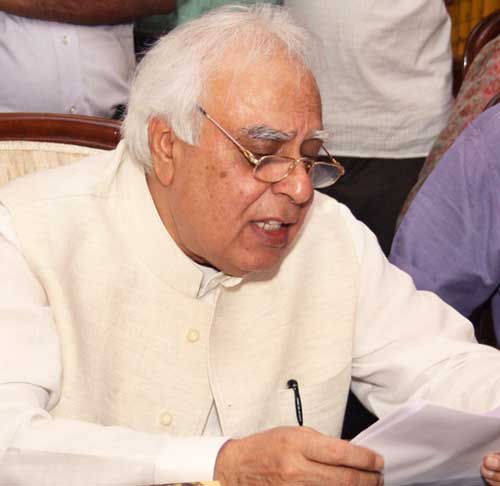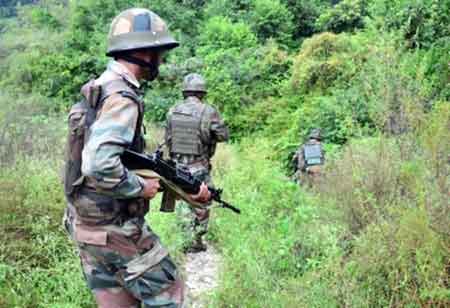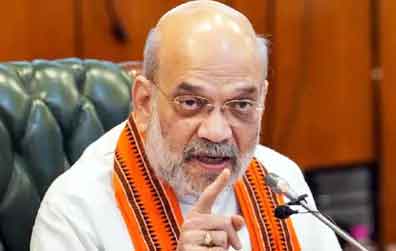Veteran leader and Rajya Sabha MP Kapil Sibal has dubbed the three Bills to completely overhaul the British-era Indian laws as a throwback to "medieval times", and also said that the Bharatiya Nyay Sanhita has absolutely no rationale for giving such enormous powers to the government.
Union Home Minister Amit Shah on August 11 in the Lok Sabha introduced three bills, saying these will completely overhaul the British-era Indian criminal laws, the Indian Penal Code (1860), Code of Criminal Procedure (1898), and the Indian Evidence Act (1872).
Shah introduced the Bharatiya Nyaya Sanhita Bill, 2023 which seeks to replace the IPC, the Bharatiya Nagrik Suraksha Sanhita Bill that seeks to replace the CrPC, and the Bharatiya Sakshya Bill, 2023 which seeks to replace the Indian Evidence Act, on the last day of the monsoon session.
Referring to the three bills for consideration of the Parliamentary standing committee on home affairs, Shah said that the earlier laws strengthened British rule, while the proposed laws will protect the rights of the citizens and give speedy justice to the people.
In a candid interview with IANS, Sibal, a former Union Law Minister and also an eminent lawyer, discussed the three Bills in detail.
Excerpts from interview:
IANS: You have asked the government to withdraw the three bills that aim to replace colonial-era IPC, CrPC and Indian Evidence Act. What are your reservations?
Sibal: What does the government mean by doing away with the colonial era? You must tell how these bills represent a progressive reform of a criminal justice system as it existed prior to January 26, 1950.
When I read the provisions of these Bills, especially the Bharatiya Nyay Sanhita (BNS), it seems to be a throwback to medieval times where the police have now been given power to detain somebody for 60 days or 90 days in a case. In the court of criminal procedure now, the police can only take custody for only 15 days. So you are increasing police custody from 15 to 60 to 90 days and you call that getting rid of colonial laws. And it does not make sense to me.
Apart from that you have very seriously flawed the provisions. Apart from the fact, if you look at the Bill especially the English translation there are grammatical errors.
Some provisions just cannot be understood like Section 124 of the Bharatiya Nyay Sanhita. If there is a code of criminal procedure you can’t call it a justice court, I just can't understand the title. There are provisions which forbid you to hold protests. If you want to hold a protest against a Bill that has been cleared by Parliament and it is a law you can be made liable and you can be prosecuted. The person who gives you space to hold that protest can be prosecuted.
Then, if a police officer who does something that is contrary to the law, allows a person to escape for example or sends somebody to jail or grants bail to somebody knowing that it is inconsistent with law he will be prosecuted and can be punished up to seven years... what kind of justice system you want in the country, it is a throwback on the medieval times.
A judge, whether he is a magistrate or a High Court judge or a Supreme Court judge and if he renders a judgement with any dishonest intention or maliciously then he also can be sent to seven years in prison. And if the government decides that it is malicious in that what he has done is contrary to established law then also he can be prosecuted for seven years.
I personally feel that this particular Bill should be withdrawn as soon as possible. It has absolutely no rationale for giving such enormous powers to the government. If the government says this is malicious, who is going to decide. That is going to be decided during the time of trial. File a charge sheet, and that particular policeman or the particular government servant, who passes an order which is contrary to the law, will also be prosecuted. Which government servant will pass an order against the government... which policeman will grant bail to anybody. Which magistrate will grant relief to a private individual fearing that the government will tomorrow say that this order is initiated because of some alleged malicious intent?
These are very very serious matters and I don’t think that the Ministry has really applied its mind fully before even agreeing to introduce such Bills in Parliament.
IANS: What potential ambiguities could arise following the elimination of Section 124A?
Sibal: It is much worse. 124 day provision dealing with the sedition, now the concept of the security of the state has been so widened that people who even protest and endanger the security of the state, can be punished. What's the difference? In fact it's much worse. In sedition, there was a calibration of punishment, it could be up to seven years from three years. Here there is no such thing. For some offences it is seven, for some offences its three. The definitions are so vague. In the criminal justice system definitions have to be precise because the citizen must know in what circumstances they are liable to be prosecuted. If you have a definition which is vague any activity of yours may amount to threatening the security of the state, including large scale protests.
IANS: Despite the removal of section 377, concerns exist about whether the proposed Bharatiya Nyaya Sanhita adequately safeguards men against rape accusations?
Sibal: No, I don't think that's really an issue because rape laws have been in place for a long time. But, I think there is a particular provision of the law here which says if a person has a relationship with somebody and promises marriage. If a man promises marriage to a woman, he has sexual intercourse with her and ultimately does not marry her, the man can be prosecuted. There are so many occasions when two persons are together, maybe they promise marriage to each other, they are in love, they have sexual intercourse and a couple of years later when they fall apart, the women can always prosecute. The man is liable to be sent to jail. These are the provisions that have been included. They call it a great reform from the colonial era law, in fact it is just the opposite, it’s a throwback to the medieval times.
IANS: Looking at the current impasse in Parliament will these bills be passed in Parliament?
Sibal: It's gone to the standing committee. It is introduced in the Lok Sabha. I am sure the standing committee will debate it. Issue will be addressed. Hopefully it will come back to Lok Sabha, where they will pass it. But it's going to have a difficult passage in the Rajya Sabha.
IANS: Looking at the proposed Bill, can it be used against political opponents?
Sibal: Even without this amendment, all the laws are being used against the politicians, journalists, academics and students. You name it. They are using it against all those who have raised their voice against the government.








Four held in Tripura for social media posts relating to Pahalgam terror attack
Police arrested four people including two retired teachers in the past 24 hours from Tripura’s three districts for making controversial posts on social media relating to the Pahalgam terror attack, officials said on Saturday.
Indian Army responds firmly to ceasefire violations by Pakistani troops along LoC
In the wake of the recent terrorist attack in Pahalgam, Pakistan has resorted to unprovoked ceasefire violations along the Line of Control (LoC). Over the past two days, Pakistani military posts have been targeting Indian positions with small-arms fire. The Indian Army has given a strong and appropriate response to these provocations, official sources said.
US religious freedom body finds conditions for Pakistan minorities 'worsening', urges strong action
Finding "a worsening religious and political climate of fear, intolerance, and violence" for minorities in Pakistan, the US Commission on International Religious Freedom (USCIRF) has asked President Donald Trump's administration to take strong measures against the Islamic Republic.
Residences of LeT commanders, Pahalgam attack suspects demolished across Kashmir
Security forces have intensified their crackdown on Lashkar-e-Taiba (LeT) operatives and suspects linked to the deadly Pahalgam terror attack that claimed 26 lives on April 22.
India, Pakistan will 'get it figured out,' says Trump on border tensions
US President Donald Trump refused to be drawn into India-Pakistan border tensions in the aftermath of the Pahalgam terrorist attack, stating that the two countries will "get it figured out one way or the other."
CM stresses scientific drain construction to combat flood
Chief Minister Prof. Dr. Manik Saha today emphasized the need to construct drains in a scientific manner to quickly drain the water accumulated in the city during heavy rains.
Bangladeshi man, drug smuggler held at Agartala Railway Station
In a significant development, two separate operations at Agartala Railway Station led to the arrest of a Bangladeshi national for illegal entry into India and a local individual involved in attempting to smuggle ganja to Assam.
Suspected Bangladeshi flag on Rickshaw, two detained
Tension flared in the Joynagar area of Agartala on Thursday late night after locals detained two individuals in connection with a rickshaw allegedly bearing the national flag of Bangladesh.